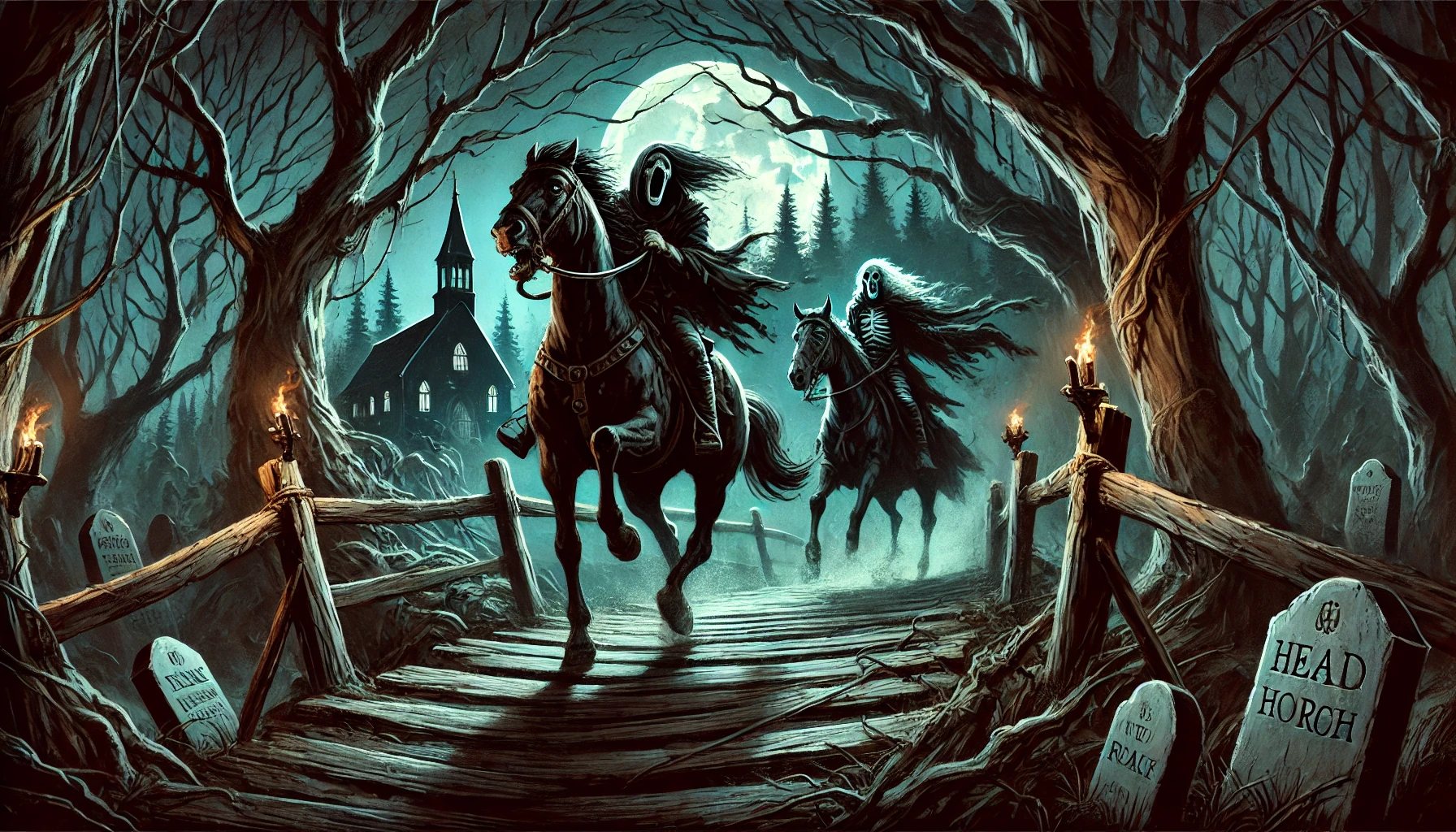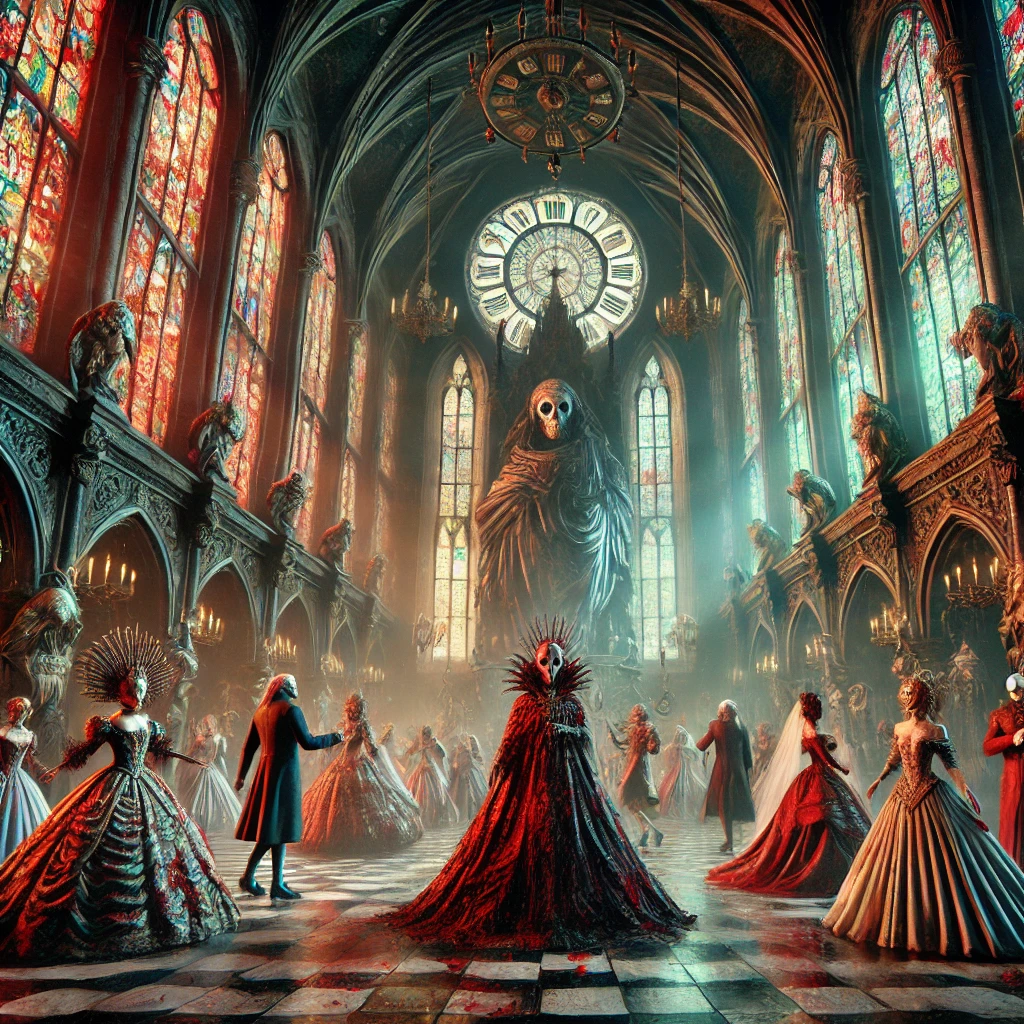The Sorrows of Satan by Marie Corelli, first published in 1895, is a supernatural and moralistic novel often considered one of the first examples of popular horror fiction. Set in a decadent and materialistic Victorian society, it explores the consequences of unchecked wealth, ambition, and the temptation of evil. Corelli, a bestselling author of her time, enjoyed immense popularity, but her works were often criticized for their heavy-handed morality and melodrama. The Sorrows of Satan can be seen as a critique of the materialism and social corruption of the late 19th century, where the pursuit of wealth and status overshadows spiritual and moral values.
Plot Summary
On a bitter winter evening in London, Geoffrey Tempest, a struggling writer, sits in his desolate room, overwhelmed by poverty and despair. He had once believed in his talent and the possibility of success, but the cruel world of literary London has ground him down. Rejected by publishers, dismissed by editors, and burdened with debt, he faces the specter of starvation. His last hope, a manuscript filled with his earnest thoughts, has been thrown aside by indifferent readers. The world seems to conspire against him, and he curses the injustice of a society that rewards mediocrity while ignoring true genius.
As he contemplates his dire circumstances, three letters arrive. One from an old college friend, John Carrington, offers unexpected news—a loan of fifty pounds and an introduction to a man of immense wealth and influence who can help Geoffrey in his career. The second letter, however, is even more astonishing. A distant relative, whom Geoffrey barely remembers, has died in South America, leaving him an inheritance of five million pounds. The sudden, immense fortune feels like a wild dream. In an instant, Geoffrey’s life is transformed. The third letter, written in a refined hand, informs him of a visitor—Prince Lucio Rimânez, the very man mentioned by Carrington.
That evening, Geoffrey receives the mysterious and charismatic Lucio, a tall, striking figure of extraordinary beauty and charm. Lucio seems to know everything about Geoffrey, and his manner is both gracious and commanding. As they talk, Lucio’s cynicism about humanity becomes clear. He speaks of the futility of high ideals, the emptiness of virtue, and the overwhelming power of wealth. The prince offers Geoffrey the friendship and guidance he so desperately needs, introducing him to the elite circles of London society. Under Lucio’s influence, Geoffrey begins to enjoy the fruits of his newfound fortune—luxury, fame, and social status.
With Lucio by his side, Geoffrey’s rise in society is meteoric. He is hailed as one of the richest and most eligible bachelors in England, invited to the grandest houses and the most exclusive gatherings. His fortune opens every door, and even his literary work, once scorned, is now praised simply because of his wealth. Yet as Geoffrey moves among the glittering upper class, he becomes increasingly aware of the moral decay that surrounds him. The people he meets, including those he once envied, are shallow, corrupt, and driven by greed. It is a world devoid of genuine love, friendship, or honor, and Geoffrey himself, under Lucio’s influence, begins to reflect these darker traits.
Amid this social whirl, Geoffrey falls in love with Sibyl Elton, a beautiful but cold-hearted woman. Sibyl, dazzled by Geoffrey’s wealth, agrees to marry him, but it is soon clear that she loves neither him nor anyone else. Their marriage is a hollow arrangement, filled with bitterness and disappointment. Sibyl’s vanity and ambition are unchecked, and she shows nothing but contempt for Geoffrey. Despite his efforts to win her affection, she remains distant, her heart set only on climbing higher in society.
As Geoffrey’s personal life spirals into misery, Lucio remains ever-present, watching with a mix of amusement and pity. Lucio’s charm never falters, but his words grow more cynical, his influence more insidious. He continues to guide Geoffrey deeper into moral corruption, subtly encouraging his worst impulses. Geoffrey, blinded by his admiration for Lucio and his own desires, does not see the true nature of his companion. Lucio’s fascination with human frailty becomes more evident, and Geoffrey begins to sense that there is something otherworldly about him, though he cannot fully understand it.
In the midst of his growing despair, Geoffrey encounters Mavis Clare, a successful writer whose work embodies everything Geoffrey once believed in—truth, beauty, and moral integrity. Mavis is the antithesis of the corrupt figures that now surround him. She is modest, talented, and respected, achieving her success not through wealth but through the purity of her art. Geoffrey is drawn to her, but he knows he cannot have her. She represents a world that he has left behind, a world of goodness that now feels alien to him. In her presence, Geoffrey feels the weight of his own moral failings, and for the first time, he begins to question the path he has taken.
As his internal struggle intensifies, tragedy strikes. Sibyl, trapped in a loveless marriage and driven by her own inner torment, takes her own life. Her death is a devastating blow to Geoffrey, who is left to confront the emptiness of his existence. The fortune that once seemed like a blessing now feels like a curse, and the social status he once craved is meaningless. In the midst of his grief, Lucio reveals his true identity—he is Satan, the fallen angel, and Geoffrey’s rise to wealth and power has been part of a larger scheme to tempt and corrupt him.
Lucio’s revelation shatters Geoffrey. He realizes that he has been a pawn in a cosmic battle between good and evil, and that his soul is at stake. Filled with horror, Geoffrey begs for redemption, but Lucio, with a mixture of cold detachment and sorrow, tells him that the choice was always his. Geoffrey’s wealth, his ambition, and his moral decline were all consequences of his own decisions. Lucio departs, leaving Geoffrey to face the consequences of his actions.
In the end, Geoffrey is left alone, stripped of his illusions and burdened with the knowledge of his own spiritual downfall. The wealth that once defined him is no longer a source of pride, but a symbol of his moral bankruptcy. In a final, desperate act of repentance, he turns to Mavis Clare, hoping to find some semblance of redemption in her goodness. But the gulf between them is too wide. Geoffrey must face the truth: the sorrows of Satan are his own.
Main Characters
Geoffrey Tempest: The protagonist, Geoffrey is a struggling writer who inherits an enormous fortune from a distant relative. He is initially portrayed as a proud man, bitter about his failure to achieve recognition in literature and success in life. However, his sudden wealth transforms his circumstances, allowing him to rise in society but also exposing him to deeper moral dilemmas, particularly as he encounters Satanic temptation through his mysterious benefactor.
Lucio Rimânez: A key figure in the novel, Lucio introduces himself as a “Prince” and a wealthy aristocrat, but it is later revealed that he is Satan in disguise. He becomes Geoffrey’s closest companion and offers him guidance and introductions to high society, but his real intention is to lead Geoffrey into spiritual ruin. Lucio embodies both charm and malevolence, representing the dangers of yielding to temptation and ambition.
Sibyl Elton: A beautiful woman who becomes Geoffrey’s wife, Sibyl appears to embody the ideals of Victorian femininity but is revealed to be cold and manipulative. Her tragic fate and empty pursuit of status reflect the novel’s themes of the hollowness of materialism and vanity.
Mavis Clare: A successful and virtuous author who stands in contrast to Geoffrey and the corrupt figures around him. Mavis represents moral integrity and is one of the few characters unaffected by the materialistic world. Her success, unlike Geoffrey’s, comes from genuine talent and goodness, making her a foil to the protagonist.
Theme
Temptation and the Nature of Evil: At the heart of the novel is the idea of temptation, represented by Lucio Rimânez, who embodies Satan. The novel explores how easily people can be seduced by wealth, power, and status, and how these desires lead to moral decay. Geoffrey’s interactions with Lucio serve as an allegory for the Faustian bargain, where the soul is compromised in exchange for worldly pleasures.
Materialism and Moral Decline: Corelli’s critique of the materialism of Victorian society is a central theme. Characters who pursue wealth and status, such as Geoffrey and Sibyl, find themselves spiritually and emotionally bankrupt. The novel argues that true happiness and success cannot be achieved through material wealth but through moral integrity and humility.
The Role of Women: The novel contrasts two types of women—Sibyl, who is vain and ambitious, and Mavis, who is virtuous and talented. Corelli uses these characters to critique the societal pressures placed on women to conform to ideals of beauty and status, suggesting that true value lies in intellectual and moral qualities rather than physical appearance or social standing.
Redemption and Damnation: Geoffrey’s journey is a moral and spiritual one, where he is forced to confront his own failings and the consequences of his choices. The novel delves into Christian themes of redemption, sin, and damnation, portraying Geoffrey’s wealth as both a blessing and a curse that tests his soul.
Writing Style and Tone
Marie Corelli’s writing style in The Sorrows of Satan is grandiose, moralizing, and heavily descriptive, often bordering on melodrama. She employs a highly emotive and rhetorical tone, with frequent moral commentary that reflects her concern with the spiritual decay she saw in society. Corelli’s prose is dense and ornate, filled with vivid descriptions of luxury, sin, and despair, all of which serve to heighten the novel’s Gothic and supernatural atmosphere.
The tone of the novel is predominantly dark and foreboding, with an undercurrent of moral earnestness. Corelli’s narrative voice often breaks into the story, reminding the reader of the moral lessons being illustrated through the characters’ fates. Despite the supernatural elements, the novel also critiques real societal issues of the time, such as the obsession with wealth and the superficiality of the upper classes, giving it a didactic tone aimed at promoting spiritual and moral values.
We hope this summary has sparked your interest and would appreciate you following Celsius 233 on social media:
There’s a treasure trove of other fascinating book summaries waiting for you. Check out our collection of stories that inspire, thrill, and provoke thought, just like this one by checking out the Book Shelf or the Library
Remember, while our summaries capture the essence, they can never replace the full experience of reading the book. If this summary intrigued you, consider diving into the complete story – buy the book and immerse yourself in the author’s original work.
If you want to request a book summary, click here.
When Saurabh is not working/watching football/reading books/traveling, you can reach him via Twitter/X, LinkedIn, or Threads
Restart reading!








